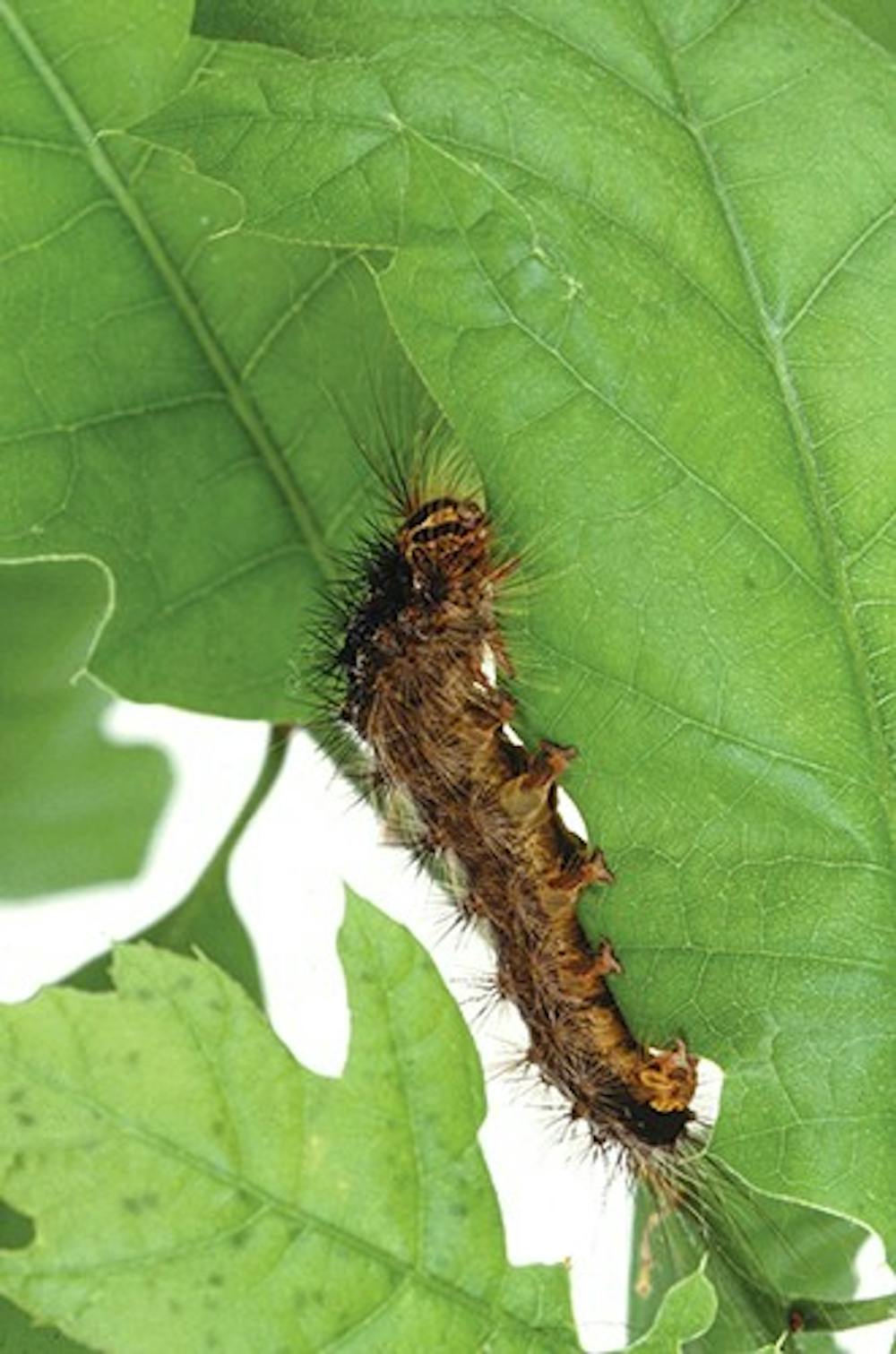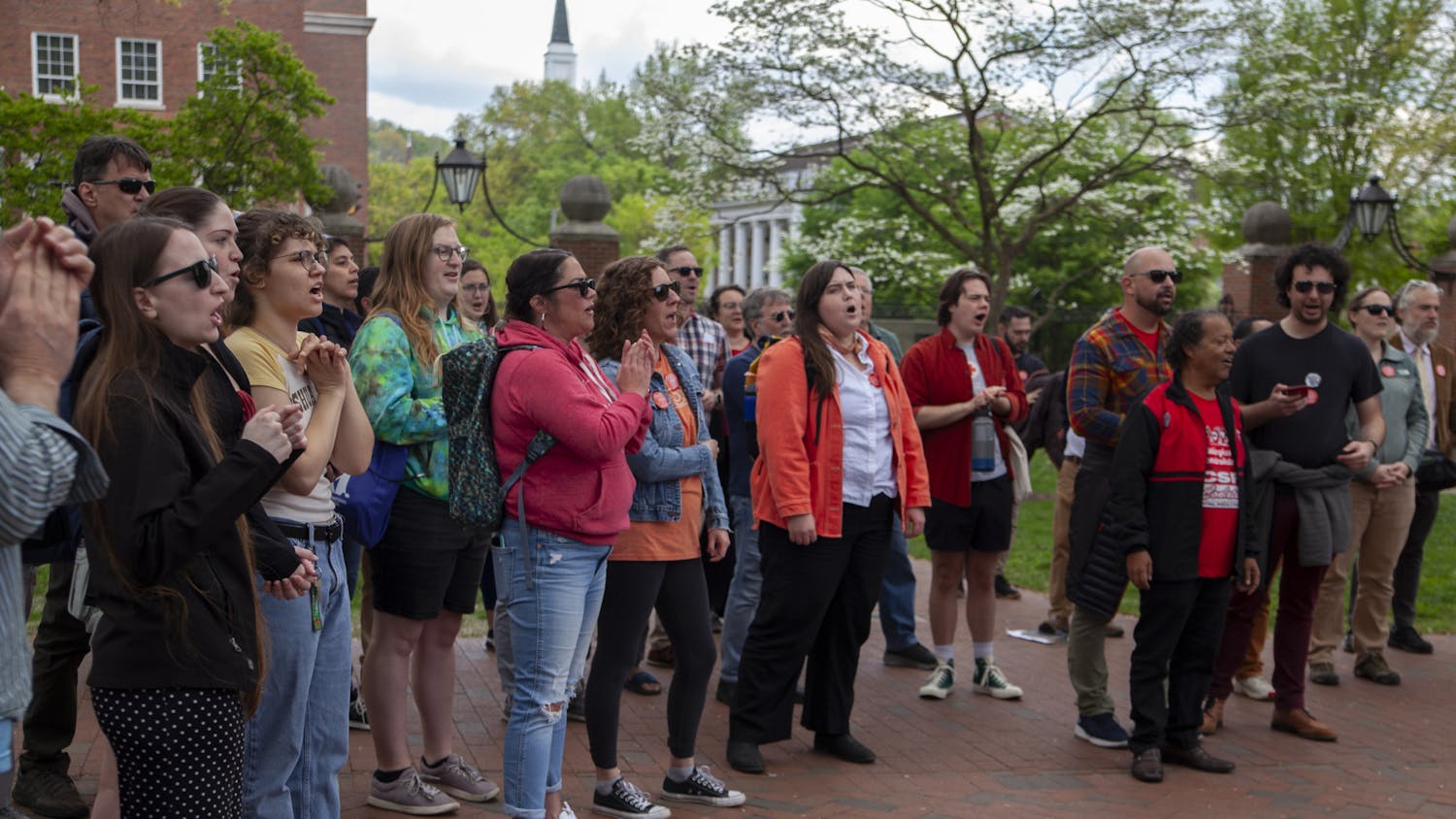Athens County might avoid a harmful invasion as one of several Ohio counties slated to receive aerial pesticide treatments for gypsy moths.
The invasive insect attacks more than 300 types of trees and shrubs, causing cycles of defoliation, or causing the leaves to fall off, until the plant finally dies, said Brett Gates, spokesperson for the Ohio Department of Agriculture.
As part of the “slow the spread” treatment plan, two sections of land in the county will be sprayed with a “mating disruption” pesticide that inhibits the male gypsy moths’ ability to locate female moths, Gates said.
The areas being sprayed include a 571-acre square of land lying south of the city of Athens off Route 33 and a 4,630-acre parcel split between Hocking and Athens counties on Connet Road between Wayne National Forest and Zaleski State Forest, according to maps on the Ohio Department of Agriculture’s website.
Every year, the department places a series of traps throughout the state to determine which kind of treatment plan each county needs, Gates said. Athens County is on the front lines of defense against the gypsy moth and could be the moth’s entry point into Ohio, which is why it is receiving the treatments, he added.
About 1,198 acres of the Wayne National Forest lie within the section of land slated to be treated on Connet Road, according to the national forest’s website.
“Non-native invasive gypsy moths are known to be present in the Wayne National Forest and in Southeast Ohio in low numbers, but have not caused major damage,” said Steve Alarid, forester with the Wayne National Forest.
“Because their populations are small and scattered in this area, treatments such as mating-disrupting pheromone sprays are effective at slowing their spread.”
The national forest received the same treatment in 2006, 2010 and 2012, Alarid said. He added that the pesticide used is specific to gypsy moths and will not harm any other “non-target species.” The treatments will begin mid-June and are not toxic to humans, pets, birds or fish, according to an Ohio Department of Agriculture news release.
ls114509@ohiou.edu






